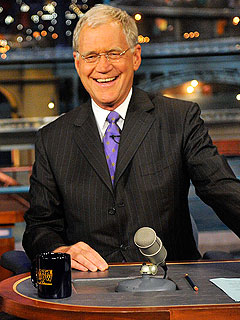
10. Literature is a genuine human creation, a language like math and music, which does not occur in nature. What is defined as culture is a) giving nature a human form (the sounds of nature are not the sounds of music), b) the best that has been thought and said.
9. Political/Scientific reasons: Literature presents different visions of the world we want or don’t want, a way to measure and choose politicians and policies when we vote. It even guides and inspires science, as the visions of literature are being realized, such as Icarus and hang-gliding, or computers that write and respond to vocal commands, even the cellular phone, an influence from sci-fi Star Trek. Also, politicians and governments do not sink to their lowest level of brutality, inflicting the greatest misery on the greatest number, until they rationalize it in words. See Hitler’s Mein Kampf. Be able to read to know difference between ideas which are for or against life, and not accept them passively.
8. Literature reminds us of our need for primary concerns which we share with animals (especially our concerns for food and water, sex, clothing, shelter, and unimpeded movement) over secondary concerns which are our loyalties to a group/mob and beliefs like capitalism, religion, communism. Too often we go to war because we don’t like how another group thinks. Many stories are also of a paradise lost and gained (e.g. story of Eden, Atlantis, the Garden of Hesperides) and we can’t go anywhere unless nature is looked after as well, a strong message for the troubled environment we live in.
7. One often missed point: art and literature are therapeutic. Watching Hollywood movies is the most obvious application of art to cheer us up. Most movies are adaptations of books. No books = no movies, as scripts themselves are written in a literary form, and are direct descendants of drama and theatre. Books and other arts (role-playing) provide a healthy catharsis and emotional release, as a healthy mind is the basis of all health.
6. Reading stories force us to identify with the main character who often is very different from us. This ability to identify, to walk in someone else’s shoes, helps us to identify with and learn tolerance for people who dress, think, speak, act and worship differently.
5. Literature brings the past and future into the present through stories which tell us about ourselves, revealing the human condition. Literary stories happens. Stories of Narcissus (when we buy clothes), Orpheus (at rock concerts), David and Goliath (the underdog in sports), the Hare and Tortoise (complacency in jobs/class), Peter Pan (men who are forever boys), Cinderella (every Cosmo magazine).
4. We learn more about a genuine life, love, and power in reading than we usually do in life, a relationship, or our work – unless you are very exceptional. Life is full of the destructive random acts of fate, broken relationships and families, and missed opportunities. Literature is a virtual reality in which the reader is the hero and encounters intense experiences which reality cannot provide.
3. Literature comes in a finite form (only so many pages) which contains the infinite (unlimited commentary) — and can speak to many ages/cultures beyond it own age/culture.
2. Literature educates and exercises your mind/imagination in the same way physical activity exercises your body. We can apply this learning, this educated imagination, in a variety of ways, just as we can apply our athletic skills in a variety of activities/sports.
1. We can’t participate in society unless we learn to use our imagination. Every job, position, relationship is tinged by original sin and what makes the it bearable is the guiding ideal that only our imagination can perceive and we attempt to realize — even if the attempt is impossible (doctors attempt a perfect world of health, lawyers a world of justice, social workers a world without broken lives, teachers a world of wisdom.)

Wow your reasons for literature are brilliant! I’ve seen some of your responses relating to the educated imagination and your last interview, you seem to really understand northrop frye and am curious to see what your interpretation of each chapter of the education imagination is. Are you planning on posting one?
Mia, you can find two separate study guides for The Educated Imagination in our Robert D. Denham Library: http://fryeblog.blog.lib.mcmaster.ca/library/ Scroll down till you see the section with the heading, “Study Guides & Summaries.” There you’ll find, besides summaries of The Educates Imagination, summaries of The Secular Scripture and The Double Vision. Enjoy.
Hey Mia… you have inspired me…and a teachers guide on EI is coming…
YAN’s the BEST!!! He’s also my teacher 🙂